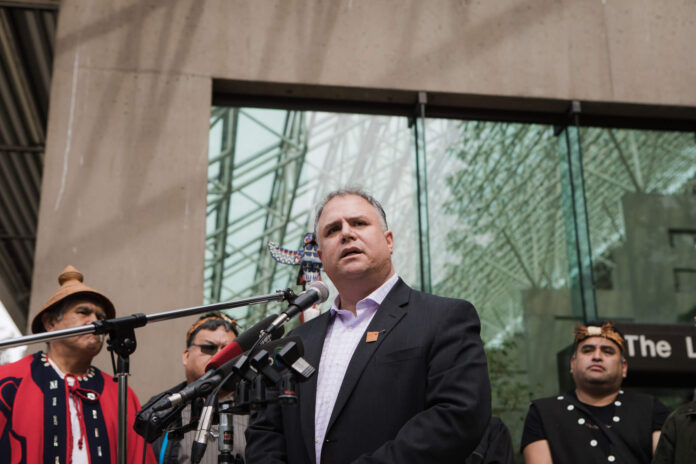THE Five Nuu-chah-nulth First Nations of Ahousaht, Hesquiaht, Ehattesaht/Chinehkint, Mowachaht/Muchalaht, and Tla-o-qui-aht on Monday congratulated the Government of Canada on its decision to end the more than 15 years of litigation against the Five Nations.
On April 19, the BC Court of Appeal (BCCA) ruled in favour of the Five Nations’ appeal. The BCCA decision overruled the lower court’s ruling that restricted the Five Nations’ commercial fishing rights, re-affirming the original 2009 decision that fishing is an integral part of the Five Nations’ economy.
The ruling also re-affirmed how Canada should uphold and accommodate the Nations’ Aboriginal right, including priority of access for the Five Nations’ fishers. The priority of the Five Nations court-affirmed Constitutional right to any species within their territories was repeatedly emphasized in the BCCA decision. Additionally, the BCCA stated that the parties involved “should be in a position to consult over allocations, and agreements on the allocation process.” The Five Nations said in a press statement that they have had to return to court repeatedly to force the federal government to act in good faith and consult in a meaningful way with them on fishing agreements.

Consistent with Bill C-15 and the BCCA ruling, the Five Nations called on the government to turn to finalizing their work together through negotiations to uphold, accommodate, and implement their right to catch and sell fish from their territories on the West Coast of Vancouver Island.
“Our Five Nations’ objective is to revitalize our role in fisheries as this is an essential part of our past and future. Our immediate goal is to get our fishers out on the water supporting their families and the health, culture, and economy of our communities. Our objective is consistent with the Liberal government’s stated commitments to reconciliation and to upholding section 35(1) of the Constitution. It is also consistent with the recognition of the rights of self-government, economic development, and the utilization and benefit of resources in Indigenous territories – all recognized in the United Nations Declaration on the Rights of Indigenous Peoples, previously endorsed by the Liberal government, and recently further supported by Canada through Bill C-15,” the Five Nations said in their statement.
“This is good news, and we appreciate that the Government of Canada has finally agreed to end a decade and a half of needless and expensive litigation. All we had asked was for our rights to be respected – you don’t need endless legal battles to do the right thing. We also must now turn to the other work we have with Canada: finalizing our reconciliation agreement. This decision does not diminish the amount of work that needs to be done to breathe life into what Indigenous people consider to be reconciliation and to convince Canada that it is a two-way street,” said Wickaninnish, Cliff Atleo, lead negotiator for the Ahousaht First Nation.
“It has been an honour and a privilege to stand with Nuu-chah-nulth fishers in their fight to exercise their Indigenous right to catch and sell fish caught within their territory. I am grateful to the government for finally respecting the re-affirmation of their rights by the courts. Now that this matter is settled, I am hopeful that the government will now come to the table with the Nuu-chah-nulth and negotiate a fair allocation,” said Gord Johns, NDP MP for Courtenay-Alberni and NDP Critic for Fisheries and Oceans.
Wickaninnish, Cliff Atleo added: “I am not happy with the Government of Canada’s interpretation of reconciliation because it falls short of allowing us to re-establish our way of life that supports our families and communities. Canada’s current approach is just not going to cut it. They need to pay attention to our perspective of what reconciliation is. It’s still going to require a lot of work and effort on the part of both Canada and our people to secure some certainty in the fishing industry. We want our fishers to be able to make a living, just like the rest of Canada has been able to do using resources in our territories.”
The Five Nations said they hope that Canada’s decision not to appeal the BCCA ruling signals a commitment to concluding a reconciliation agreement with them this summer.
“Our Five Nations are committed to moving forward with Canada on behalf of our Ha’wiih (hereditary Chiefs), our fishers, our families, and the fisheries resources that we all depend upon, they added.










